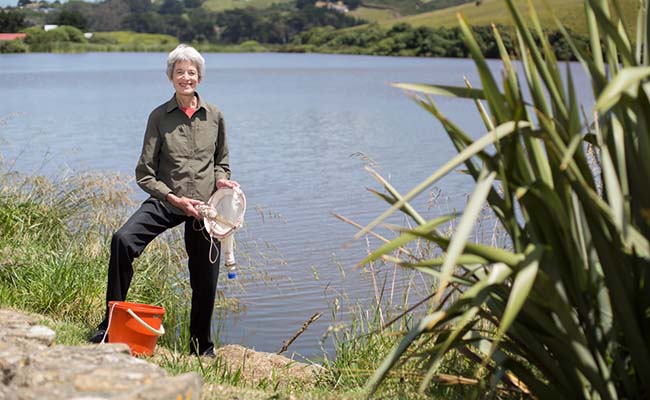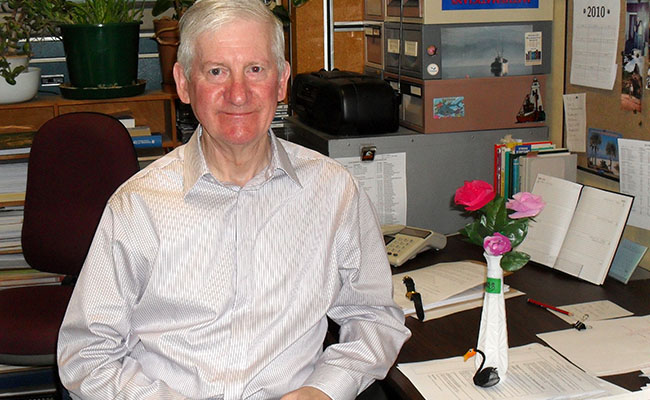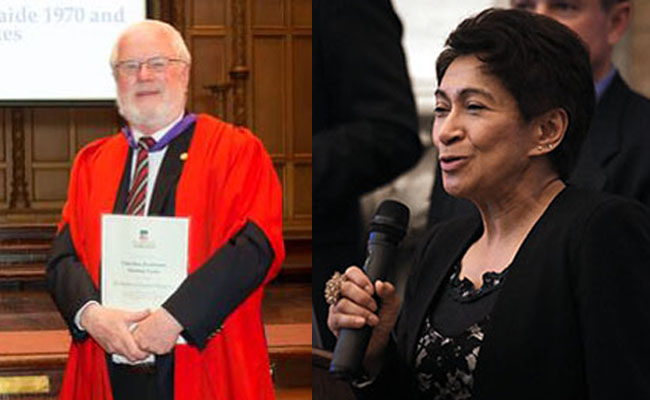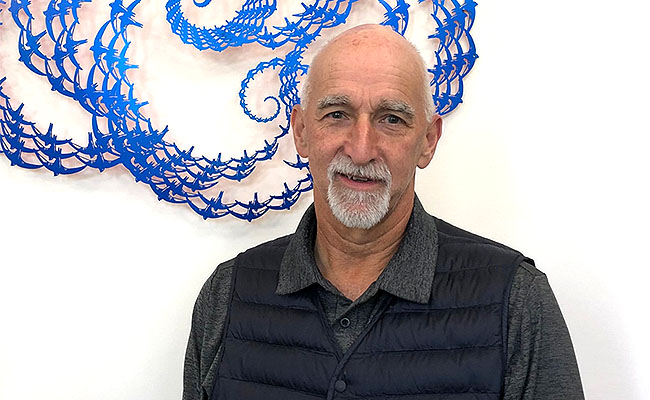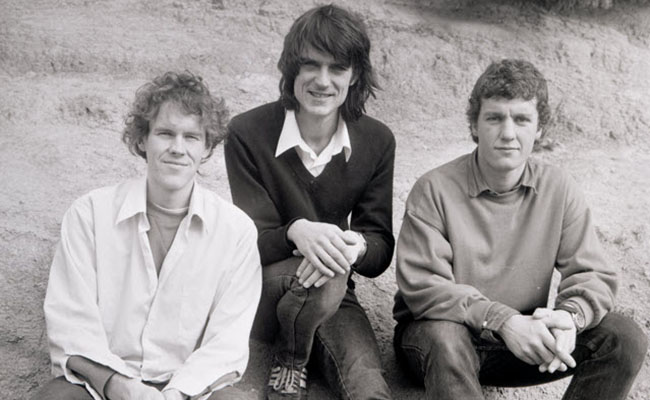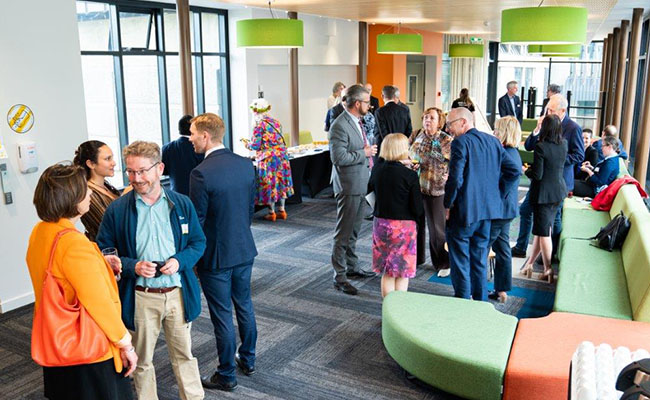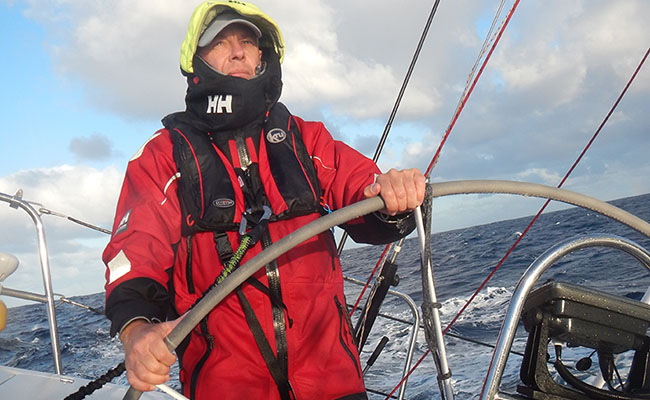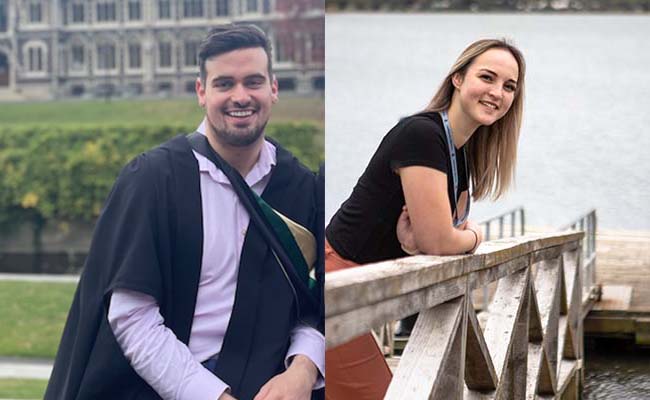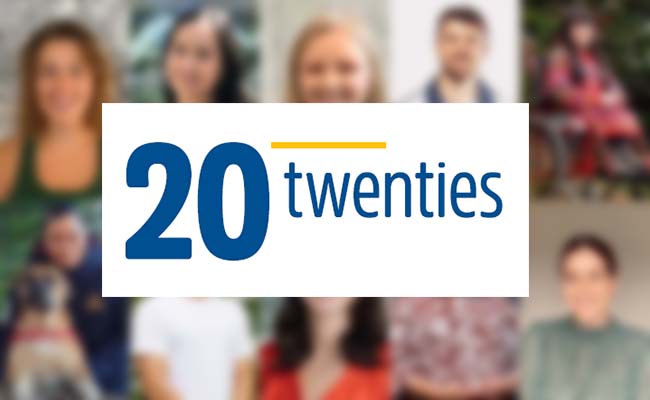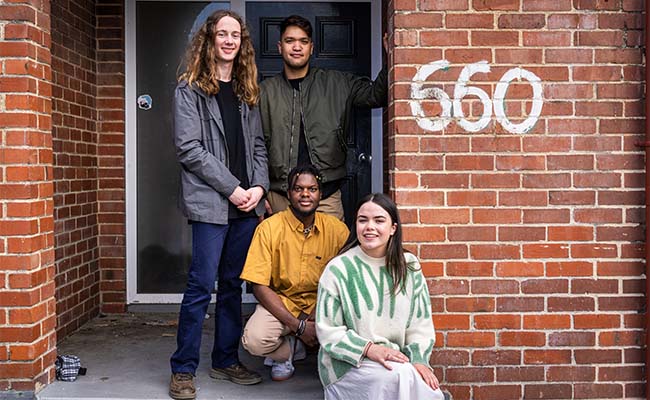Thursday 16 December 2021 9:35am
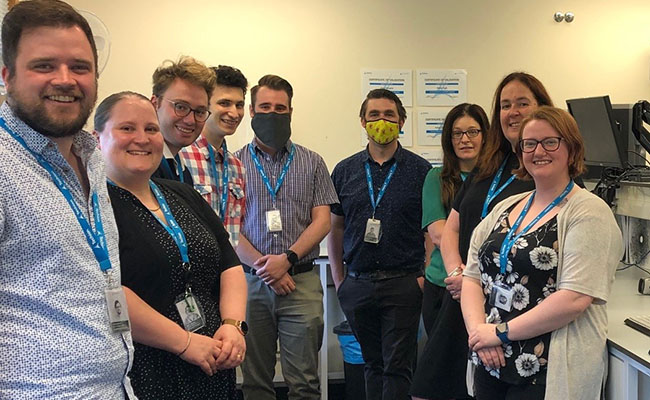
The Techion team
From the assembly room to client services; lab technicians to software development; research to marketing; Otago alumni can be found in every corner and corridor of digital microscopy business Techion.
Out of 15 New Zealand-based staff, the Mosgiel-based company employs 10 Otago alumni, plus a few extra students or recent graduates each summer. And while the founder and CEO of the company, Greg Mirams, attended Lincoln University, the relationship with Otago goes back to the very beginning of the company's expansion into digital technology.
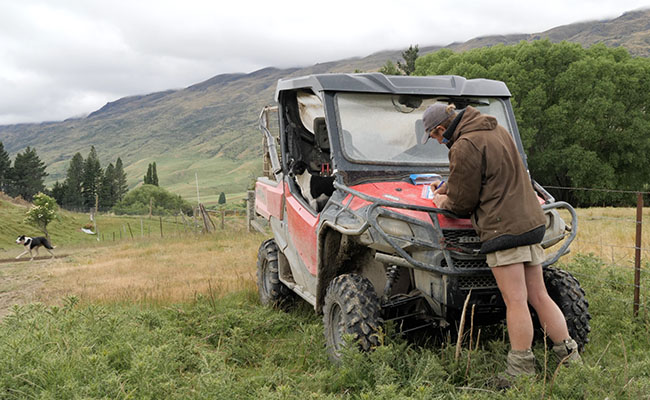
Techion Sample Collection Cardrona Farm
Greg established parasite analysis company FECPAK International in 1993, using a diagnostic kit for farmers to count and identify parasitic infection in their animals, and work out which drench to use. It relied on using a traditional microscope and accurately identifying and counting the eggs in the faecal samples. In 2006, FECPAK was sold to PGG Wrightson.
Together with nanotechnology researcher Dr Stephen Sowerby, who later became Director of Otago's Applied Science Programme, Greg promoted the need for a portable cost-effective digital microscope to image the novel particle accumulation devices. They took the idea to Dave Christensen at Otago Innovation, a University of Otago company which is responsible for developing and commercialising the University's intellectual property.
“Stephen and I went to them and said would you consider partnering with us?” says Greg. Otago Innovation joined the new business (Menixis) with Greg and Stephen to develop the digital imaging device and particle accumulation technology. Greg had launched the Techion business in 2012 from the ashes of the original FECPAK business he had purchased back from PGG Wrightson. As the Menixis technology transitioned from R&D to commercialisation, Techion took over the Menixis business and integrated it into the Techion operation. Both Dr Sowerby and the University remain Techion shareholders.
A recent agreement with Otago's Research and Enterprise office builds on the long-standing relationship by providing opportunities to roll out the digital technology in different departments of the University in the future.
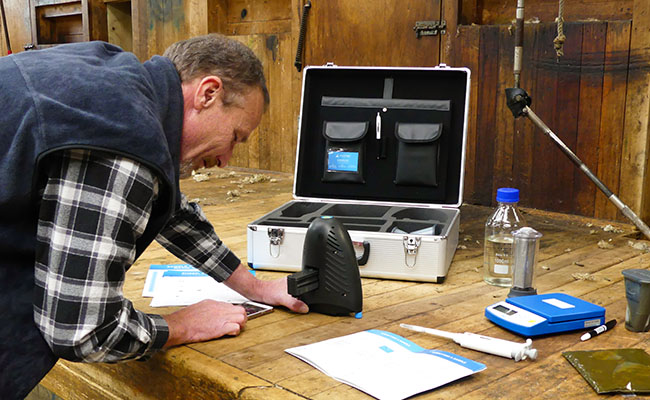
Techion Farmer in woolshed
Research and Enterprise Business Development Manager (Biomedical Technologies and Asia Partnerships) David Grimmett says Otago researchers and students will have the chance to use Techion's existing technology as well as some of their latest modifications for both research and teaching and to help validate or even improve the technology in a range of new applications.
“This is an exciting opportunity to work together across a range of departments in the human and animal health and point of care diagnostic space with the potential for many mutually beneficial outcomes,” says David.
Greg says working with Otago “is a privilege, with the partnership bringing benefit for both parties. Otago provides research, resources and expertise – all of which are vital as we further develop the platform. Techion contributes insights from platform users, which when coupled with the University's input, enable us collectively to develop diagnostic solutions which can be rolled out for commercial sale”.
Micro-I
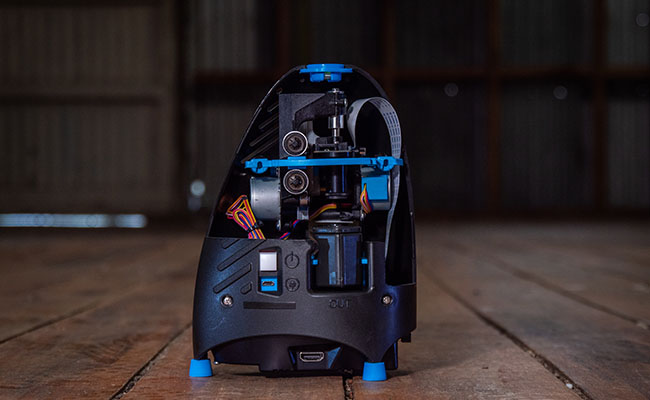
Techion Micro-I 100 workings
The digital microscope, called the Micro-I, provides a portable analysis platform, replacing the need for a traditional microscope. Micro-I allows farmers to do parasite measurements on site and upload the results to the Cloud. The technicians at Techion then analyse the results and have them back to the farmer within the hour. They can treat the animals which need it, lessening the risk of drench resistance. It can also be used as a decision-making tool by vets.
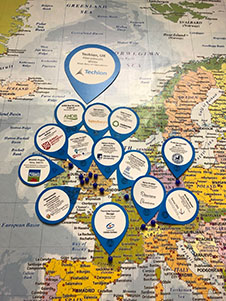
Techion map
The device is being used across the world and Techion also has a team in Wales, servicing the UK and Europe. The company is currently expanding into new areas of diagnostics, including aquaculture and human health.
Working with mussel farmers in the Tasman region, the Mico-I is being used to count mussel spat and assess spat quality, so the industry can identify catches with the best chance of surviving, improving outcomes for spat performance.
“We started in farming and now are working in aquaculture and there are really exciting areas in human health,” says Greg. They are also working with the Swiss Tropical and Public Health Institute on trials for testing worms in children in developing countries, where it's been found that board dosing all children can create drug resistance.
Otago alumni reach across the business
Sciences, Commerce, Arts and Health Sciences – graduates from every academic Division at Otago are part of the Techion team. Many have started as a summer intern or picked up some casual work in the lab or doing software testing, and following graduation are taken on as employees.
Central to helping the company develop its use of Artificial Intelligence to further increase the speed of obtaining results is System Architect, Duncan McGregor (BSc Computer Science). Overall head of the Development team, Duncan is designing software to work with the IT hardware, to collect results remotely in a way that people can easily understand and use. This includes developing AI models to speed up time between sample submissions and getting the results to the client.
Working alongside Duncan is Software Engineering and Computer Science student, Liam de Beer (software tester), and former Head of Web Services at Otago, Craig de Beer (Development Manager).
In Techion's Research and Development (R&D) team, Stacey McGregor (BSc Microbiology) is Science, Research and Development Manager. Stacey has worked at Techion for 14 years, working initially in the laboratory, then moving into R&D. She manages the team and the relationships with the research institutions they work with around the world.
Within the R&D team, Chris Attwood (MSc Genetics) is Senior Research and Development Technician. He started at the company two years ago on a summer job and has since become permanent staff.
“I'm making biological science work together with our machinery – refining experimental methods, tweaking software, getting the interface between digital technology and biology to work properly.”
Neuroscience graduate Milan Sundermann is also part of the R&D team. Milan started off as a Lab Technician last summer and moved on to become an R&D Technician. He was taken on initially as one of the students helping the lab prepare for full production in February and March.
Also initially taken on as a Lab Technician is current Product Research Project Co-ordinator Eleanor Tosh (MSc Zoology and Animal Biology).
On the operational side, Operations Manager, Sharleen Fairburn (BSc Genetics), manages the day to day running of the business, including long-term planning; budgeting; looking after IT, the board and shareholders.
In a front-of-house role, Client Support Manager Alice Hill (BAppSci Molecular Biology) has a diverse role within the business. Alice started at Techion after graduating.
“I really wanted some lab experience, and I decided I really loved it here and didn't want to leave, so I stayed, and I've been here almost three years now,” says Alice.
She says the background knowledge she gained from her degree helps her support clients and vets when they have questions. “I get to dig into my knowledge and find competent answers. There's a lot of translating technical language, so it makes sense to anyone who is going to pick up a system.”
Having worked part-time at Techion during his degree, recent Master of Finance graduate Alex Growden has a temporary job testing and assembling the microscopy units. He's off to Wellington soon to take up a job with Deloitte.
Extending the home-grown theme, Techion also uses local companies to manufacture the components for the technology, including JTech Plastics in Mosgiel which makes the plastic casings for the digital microscope equipment.
“The whole system is designed, built and developed in Dunedin,” says Nicola McConnell, an Otago BA graduate who is Techion's Sales and Marketing Manager.
